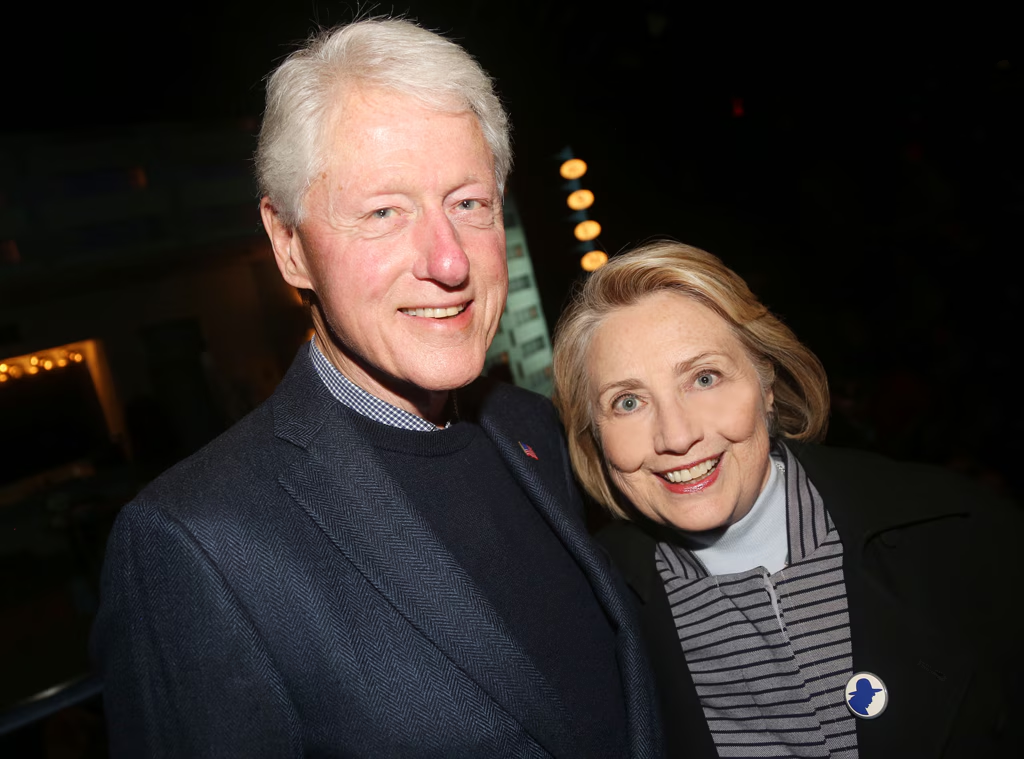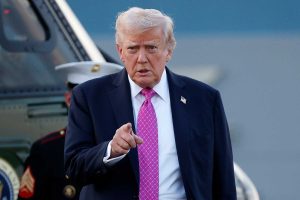The House Oversight Committee is intensifying its investigation into the late convicted sex offender Jeffrey Epstein, with former President Bill Clinton and former Secretary of State Hillary Clinton now facing potential contempt of Congress. The committee, led by Chairman James Comer (R-Ky.), has ordered the former first couple to appear for depositions next month as part of a broader probe into Epstein’s network and his connections to high-profile figures. Failure to comply could result in legal repercussions, underscoring the seriousness of the investigation and Congress’s determination to explore Epstein’s extensive web of relationships.
The subpoenas mark a significant step in the committee’s inquiry. Comer initially issued the requests to Bill and Hillary Clinton on August 5, seeking their cooperation in providing information related to their associations with Epstein and his close associate, Ghislaine Maxwell. In response, the Clintons’ attorney, David Kendall, proposed an alternative: submitting a written summary of any knowledge the former first couple might have, rather than appearing in person. The committee has rejected this proposal, asserting that in-person testimony is critical to its legislative oversight responsibilities.
Chairman Comer emphasized that the committee’s interest lies in the former first couple’s relationships with Epstein and Maxwell in their private capacities, not in any official government role. “It is precisely the fact that President Clinton and Secretary Clinton maintained these personal relationships that is relevant to our investigation,” Comer stated. This clarification underscores the committee’s focus on understanding the broader network of influence surrounding Epstein, including ties to political and business figures.
The depositions are scheduled for mid-December, with Bill Clinton directed to appear at 10 a.m. on December 17 and Hillary Clinton at 10 a.m. the following day. Comer has warned that noncompliance would trigger contempt proceedings. Should such a resolution pass both the Oversight Committee and the full House, the matter could be referred to the Department of Justice for criminal investigation, a process that could mirror recent contempt prosecutions involving high-profile figures such as Steven Bannon and Peter Navarro, both convicted for defying congressional subpoenas related to the January 6, 2021, Capitol investigation.
The committee’s expansion of the investigation into the Clintons comes amid mounting public interest in Epstein’s connections to political and financial elites. While Bill Clinton previously acknowledged flights on Epstein’s private jet and campaign contributions to Hillary Clinton’s Senate race, the committee seeks a more detailed account of the former couple’s interactions with Epstein and Maxwell. Records indicate that Epstein maintained connections with influential figures, including prominent politicians, business leaders, and international figures, highlighting the scope of his network and the potential importance of these depositions.
Epstein’s criminal history adds urgency to the investigation. In 2008, he pleaded guilty in Florida to soliciting a minor for prostitution and was required to register as a sex offender. Despite this, he maintained relationships with influential individuals, including former President Clinton, and continued to move within elite social circles. Epstein faced federal sex trafficking charges in 2019 but died in custody before standing trial. His death, officially ruled a suicide, left many questions about the full extent of his activities and associations.
The House Oversight Committee has previously received written statements from other officials who claimed to have no relevant information regarding Epstein. These included former Attorneys General Merrick Garland, Loretta Lynch, Eric Holder, Jeff Sessions, Alberto Gonzales, and former FBI Directors James Comey and Robert Mueller. Mueller’s subpoena was withdrawn due to his Parkinson’s diagnosis in 2021. Bill Barr, who served as Attorney General during the first Trump administration at the time of Epstein’s arrest, has appeared to provide testimony. The treatment of these individuals underscores the committee’s effort to balance thorough inquiry with reasonable accommodations.
In the case of the Clintons, Kendall reiterated that the former president and secretary welcome legitimate oversight grounded in factual inquiry but maintain that their personal knowledge is limited. He emphasized that any relevant information could be submitted in writing, arguing that the public’s need for transparency is met without compelling in-person testimony. Nevertheless, the committee maintains that personal depositions are necessary to fully assess the former couple’s knowledge and involvement, particularly given Epstein’s documented interactions with them.
Historical records indicate the depth of Epstein’s interactions with the Clintons. Following their time in the White House, Bill Clinton reportedly flew on Epstein’s private jet multiple times, while Hillary Clinton received campaign donations from Epstein. Epstein was known to cultivate relationships with influential individuals across multiple sectors, including business, politics, and even royalty. Ghislaine Maxwell, who is currently serving a 20-year federal sentence for sex trafficking, also maintained social ties with the Clintons, including attendance at Chelsea Clinton’s wedding in 2010. These connections have become a central point of scrutiny for the Oversight Committee.
The subpoenaed depositions aim to clarify the nature of these interactions and determine whether any relevant information has not yet been disclosed. Congressional investigators are seeking to understand not only the personal connections but also the potential influence Epstein may have wielded over prominent figures and institutions. By compelling testimony, the committee hopes to address public concern about accountability and transparency in high-level networks connected to Epstein’s criminal activities.
The committee’s investigation also intersects with broader political and legal questions regarding executive privilege and personal conduct. While former presidents may sometimes invoke executive privilege to protect certain communications, the scope of such claims typically applies to official duties rather than private relationships. Legal experts have debated whether the Clintons could successfully claim this privilege for their personal interactions with Epstein and Maxwell, a determination that could influence the committee’s ability to compel testimony and gather evidence.
Public and media attention has intensified as the committee’s actions move forward. The release of Epstein-related files, ongoing legal developments, and past statements from associates have generated widespread interest, reinforcing the importance of the committee’s work. Oversight efforts like this aim to ensure accountability and shed light on connections that may have facilitated Epstein’s ability to operate for years with minimal interference.
As the December depositions approach, questions remain about the extent to which the former first couple will cooperate. Compliance with congressional subpoenas carries significant legal implications, particularly in the context of possible contempt charges. Should Bill and Hillary Clinton fail to appear, the committee could refer the matter to the Justice Department for potential criminal proceedings, emphasizing the seriousness of congressional authority and the necessity of transparency in investigations of public concern.
The broader investigation reflects Congress’s commitment to understanding the full scope of Epstein’s activities and associations. By examining the personal and professional networks of individuals connected to him, including high-profile politicians and officials, the Oversight Committee seeks to establish a comprehensive picture of Epstein’s influence. This process is designed not only to provide answers to legislators but also to address public demand for clarity about one of the most notorious criminal cases of recent decades.
The unfolding developments regarding the Clintons’ subpoenas underscore the delicate balance between personal privacy, historical record, and public accountability. As legal and procedural questions continue to be debated, congressional investigators remain focused on their mandate: to gather factual information, assess the extent of Epstein’s connections, and provide oversight of circumstances that allowed his criminal activities to persist. The outcomes of these proceedings will have implications for broader congressional authority and the handling of investigations involving prominent public figures.

Emily Johnson is a critically acclaimed essayist and novelist known for her thought-provoking works centered on feminism, women’s rights, and modern relationships. Born and raised in Portland, Oregon, Emily grew up with a deep love of books, often spending her afternoons at her local library. She went on to study literature and gender studies at UCLA, where she became deeply involved in activism and began publishing essays in campus journals. Her debut essay collection, Voices Unbound, struck a chord with readers nationwide for its fearless exploration of gender dynamics, identity, and the challenges faced by women in contemporary society. Emily later transitioned into fiction, writing novels that balance compelling storytelling with social commentary. Her protagonists are often strong, multidimensional women navigating love, ambition, and the struggles of everyday life, making her a favorite among readers who crave authentic, relatable narratives. Critics praise her ability to merge personal intimacy with universal themes. Off the page, Emily is an advocate for women in publishing, leading workshops that encourage young female writers to embrace their voices. She lives in Seattle with her partner and two rescue cats, where she continues to write, teach, and inspire a new generation of storytellers.








